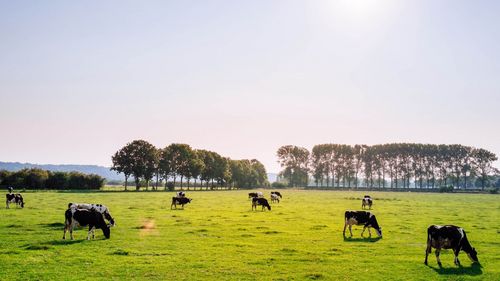How Cultural Evolution Affects the Future of Food
Food is not only a necessity of life, but it is also an important aspect of every culture. In fact, food and culture are inseparable. The way people prepare, cook, and consume food is reflective of their cultural practices, traditions, and beliefs. As time goes by, cultures evolve, and so does the food they consume. This article examines how cultural evolution affects the future of food.
Cultural Evolution and Food
Cultural evolution refers to the changes that occur within a culture over time. These changes occur as a result of many factors, including globalization, migration, and innovation. These factors have contributed to the evolution of food, making it more diverse and complex.
In the past, people consumed only locally available food. They hunted, gathered or farmed what was available in their immediate surroundings. However, with globalization, food from different parts of the world became readily available. People started experimenting with different cuisines, and this led to the fusion of different cultural dishes.
Migration also played a crucial role in the evolution of food. As people moved from one region to another, they carried their culinary traditions with them. This led to the emergence of new cuisines and culinary practices. For example, Indian cuisine in the UK is different from Indian cuisine in India because it has evolved to suit the palates of the local population.
Innovation has also contributed to the evolution of food. New technologies and ingredients have made it possible to create foods that were once impossible to prepare. For example, the invention of freeze-drying technology has made it possible to preserve food for a longer period and transport it to different parts of the world.
The Future of Food
As cultures continue to evolve, the future of food looks promising. With the fusion of different cuisines, people will be exposed to new and exciting flavors that they have never tasted before. New ingredients and technologies will allow chefs and foodies to create even more innovative dishes.
However, cultural evolution also poses some challenges to the future of food. One of the biggest challenges is the loss of traditional food practices. As people adopt new cuisines, some traditional dishes and cooking methods may be forgotten, and this can be a loss to our cultural heritage.
Another challenge is the impact of food production and consumption on the environment. As the population grows, the demand for food will increase, which may lead to increased deforestation, water scarcity, and emissions. To ensure a sustainable future for food, we need to adopt responsible production and consumption practices.
Conclusion
In conclusion, cultural evolution has had a significant impact on the food we consume today, and this impact will continue in the future. While cultural evolution brings exciting opportunities for new culinary experiences, we must strive to preserve our traditional food practices and ensure responsible food production and consumption. By doing so, we can enjoy a diverse and sustainable food culture for generations to come.
(Note: Do you have knowledge or insights to share? Unlock new opportunities and expand your reach by joining our authors team. Click Registration to join us and share your expertise with our readers.)
Speech tips:
Please note that any statements involving politics will not be approved.
